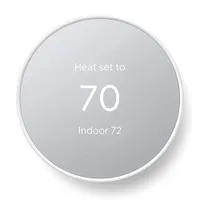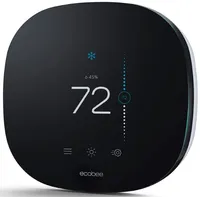The ideal temperature to set your thermostat on when on winter vacation
Tick this off your to-do list before hitting the road to avoid burst pipes and high bills during the cold snap

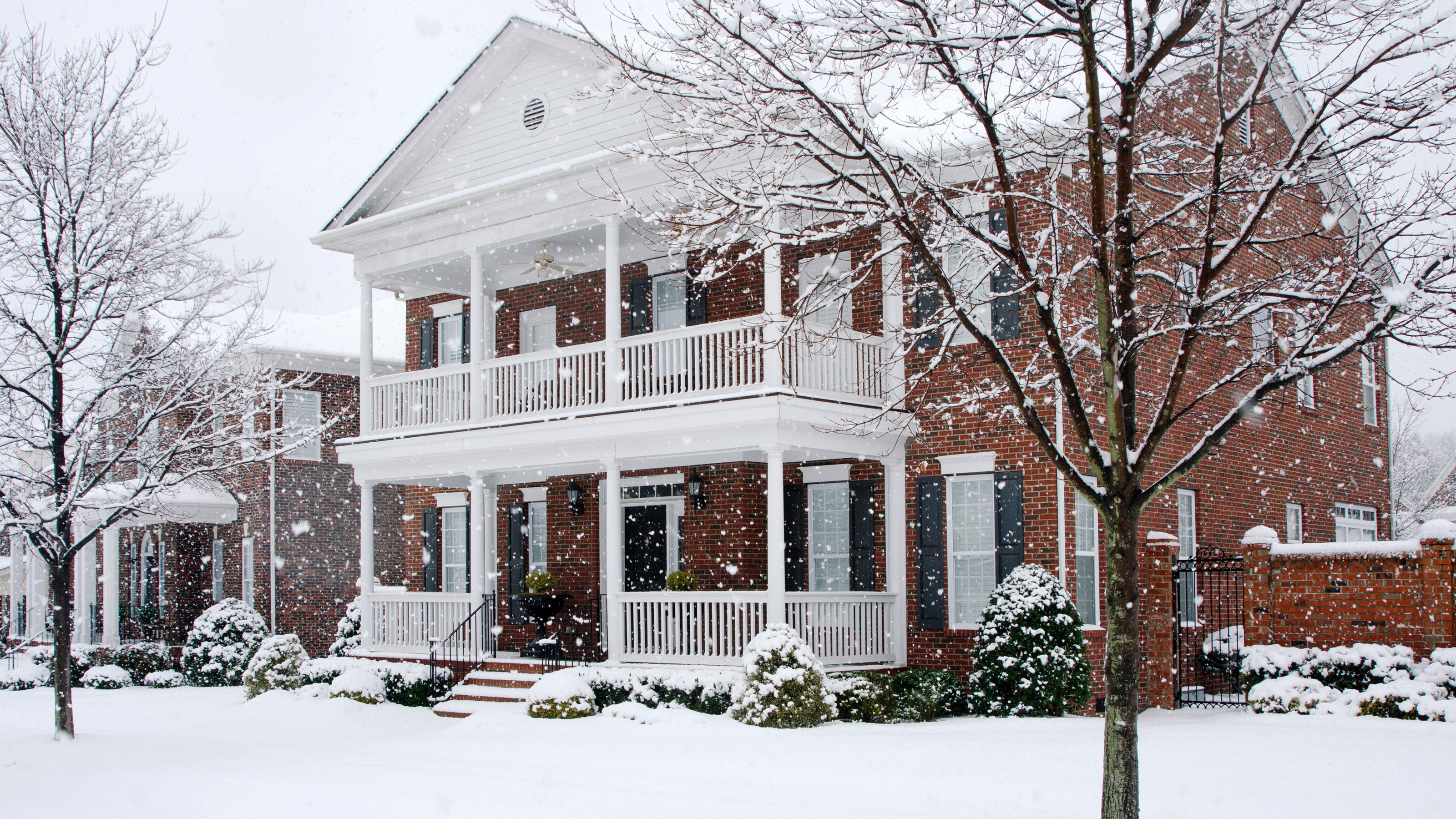
Design expertise in your inbox – from inspiring decorating ideas and beautiful celebrity homes to practical gardening advice and shopping round-ups.
You are now subscribed
Your newsletter sign-up was successful
Want to add more newsletters?

Twice a week
Homes&Gardens
The ultimate interior design resource from the world's leading experts - discover inspiring decorating ideas, color scheming know-how, garden inspiration and shopping expertise.

Once a week
In The Loop from Next In Design
Members of the Next in Design Circle will receive In the Loop, our weekly email filled with trade news, names to know and spotlight moments. Together we’re building a brighter design future.

Twice a week
Cucina
Whether you’re passionate about hosting exquisite dinners, experimenting with culinary trends, or perfecting your kitchen's design with timeless elegance and innovative functionality, this newsletter is here to inspire
You've packed your suitcase, completed some slightly paranoid kitchen appliance checks, and you're officially ready for a winter vacation. But what about the heating?
The cold snap has left many of us wondering what the best temperature to set the thermostat might be on when we're away over the holidays. Exposing our homes to extreme temperature fluctuations isn't ideal for many reasons, from putting strain on your furnace to making your favorite houseplants wilt.
Regardless of the kind of home heating we may have, no one wants to leave their homes warmer than necessary right now. But we don't want to come back to an igloo – or worse, burst pipes – either. Below, experts explain how to get a happy medium.
after-Christmas smart thermostat deals
Google Nest Thermostat | was $129.99, now $99.99 at Amazon
Save 23% on the Google Nest. This clever gadget means you can control your heating from your cell, so you monitor your home when you're out of town.
Ecobee3 Lite SmartThermostat | was $149.99, now $128.79
With thousands of positive Amazon reviews, the EcoBee3 Lite SmartThermostat can link to almost any home assistant, and installs in just 30 minutes.
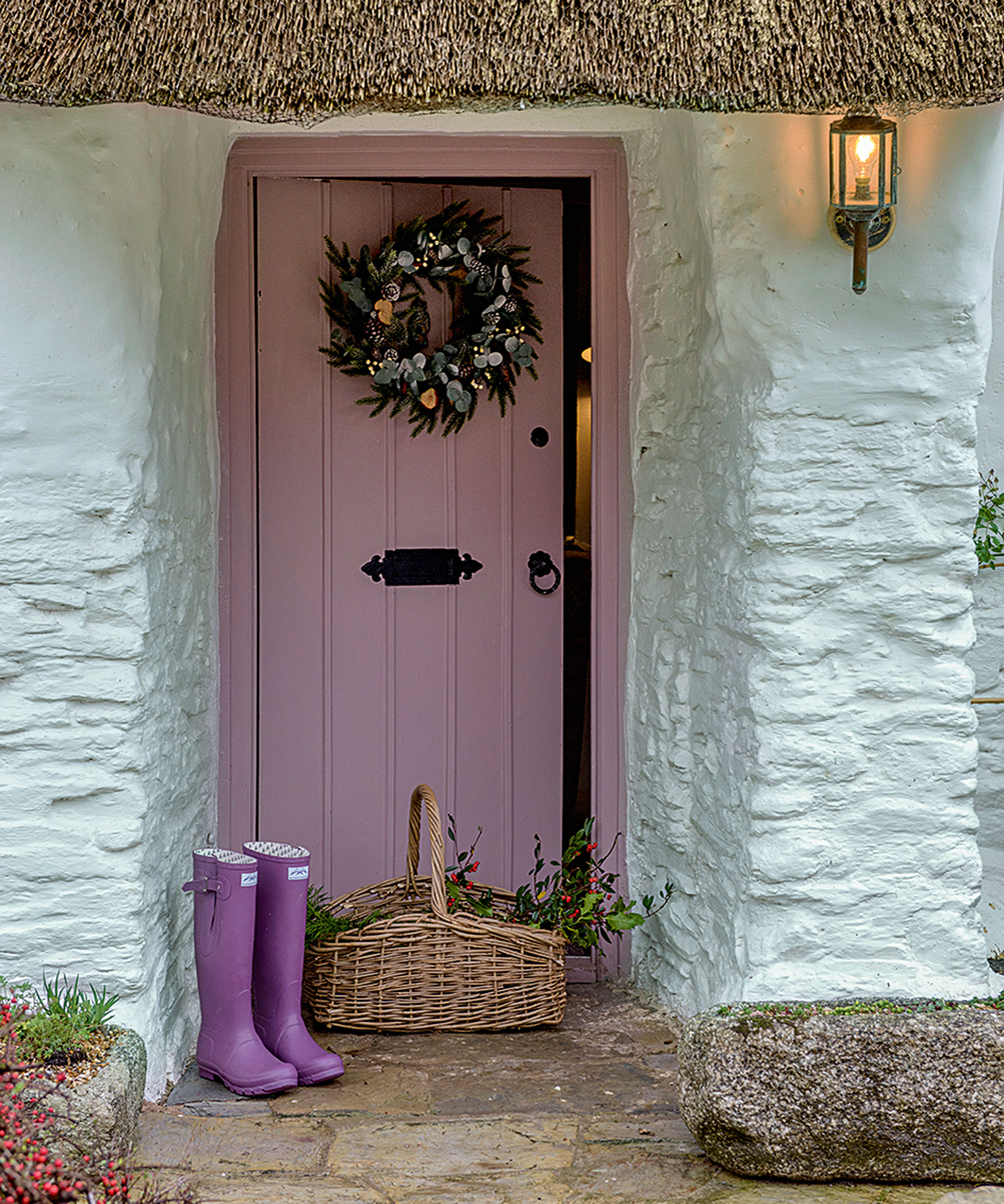
What temperature to set the thermostat on when on vacation in winter
'Usually, the standard setback temperature for most heating systems is 59-60˚F,' says Jason Orme, speaker at the Homebuilding & Renovating Shows, and author of The Self Build Dream. 'This allows the house to retain key warmth in the fabric and makes it relatively easy to get back up to warm levels (66-69˚F) when needed.'
Crucially, it depends on how long you'll be out of town and what the weather is doing — the longer you're away and the colder it is, the more important it will be to set your heating to come on. However, the sweet spot is generally considered to be around 55˚F. It's tempting to turn the heating off entirely to cut energy bills if you're not away for many nights. But bear in mind that allowing your home to reach extremely low temperatures could mean you're greeted by water pipes that have frozen and burst on your return. This is both costly to repair and massively inconvenient.
Next, we asked Glenn Wiseman, RASDT, RHDT, Sales Manager at Top Hat Home Comfort Services, who said that if you are leaving the house for a week or more, reducing your temperature significantly will help you save money on heating costs. 'There are several ways to determine the best temperature for your home,' he comments. 'Usually, 55˚F is suggested for climates with cold winters, as it is cool enough to bring down the overall heating cost, yet warm enough to ensure your pipes don't burst or other damages caused by cold temperatures don't come up.'
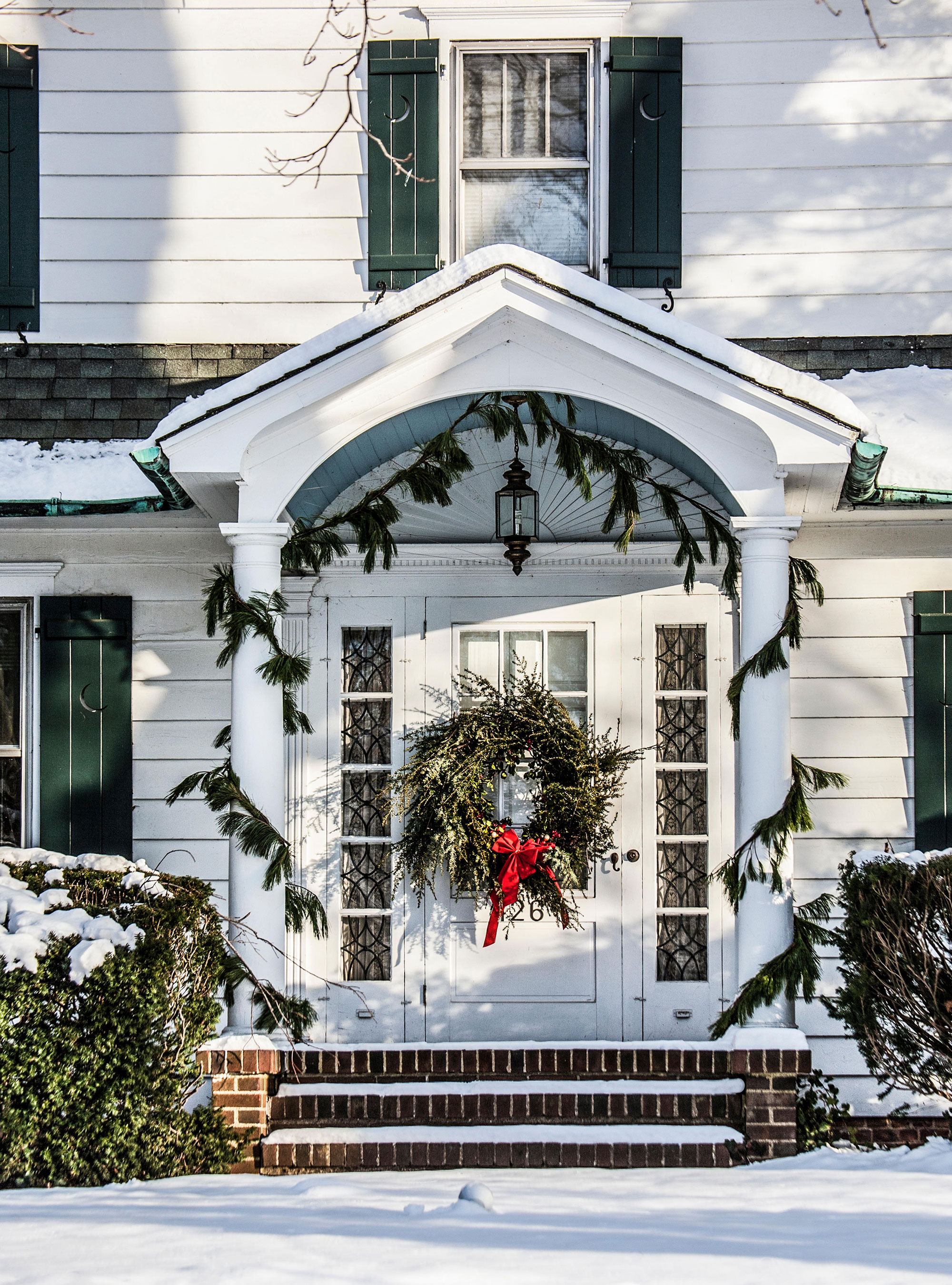
'Another guideline is to set your thermostat to 4˚F below its winter room temperature. You should check the expected weather for the duration of your vacation to see if there will be any cold fronts where the external temperature is below 32˚F for a few days or more,' Glenn advises. Situations like these highlight the benefits of smart thermostats, which allow you to control your heating from your phone.
Design expertise in your inbox – from inspiring decorating ideas and beautiful celebrity homes to practical gardening advice and shopping round-ups.
In cases where the temperature will be this low, consider other ways to winterize your house, like turning off the main water shutoff valve to cut off the flow to your pipes and then draining all your faucets. Doing this will reduce the risk of water remaining in the pipes that could expand and cause them to burst. This is especially important if you're off on a long vacation and your home is going to be experiencing very cold temperatures. Glenn explains that if you do this, you can set your thermostat as low as 50˚F safely.
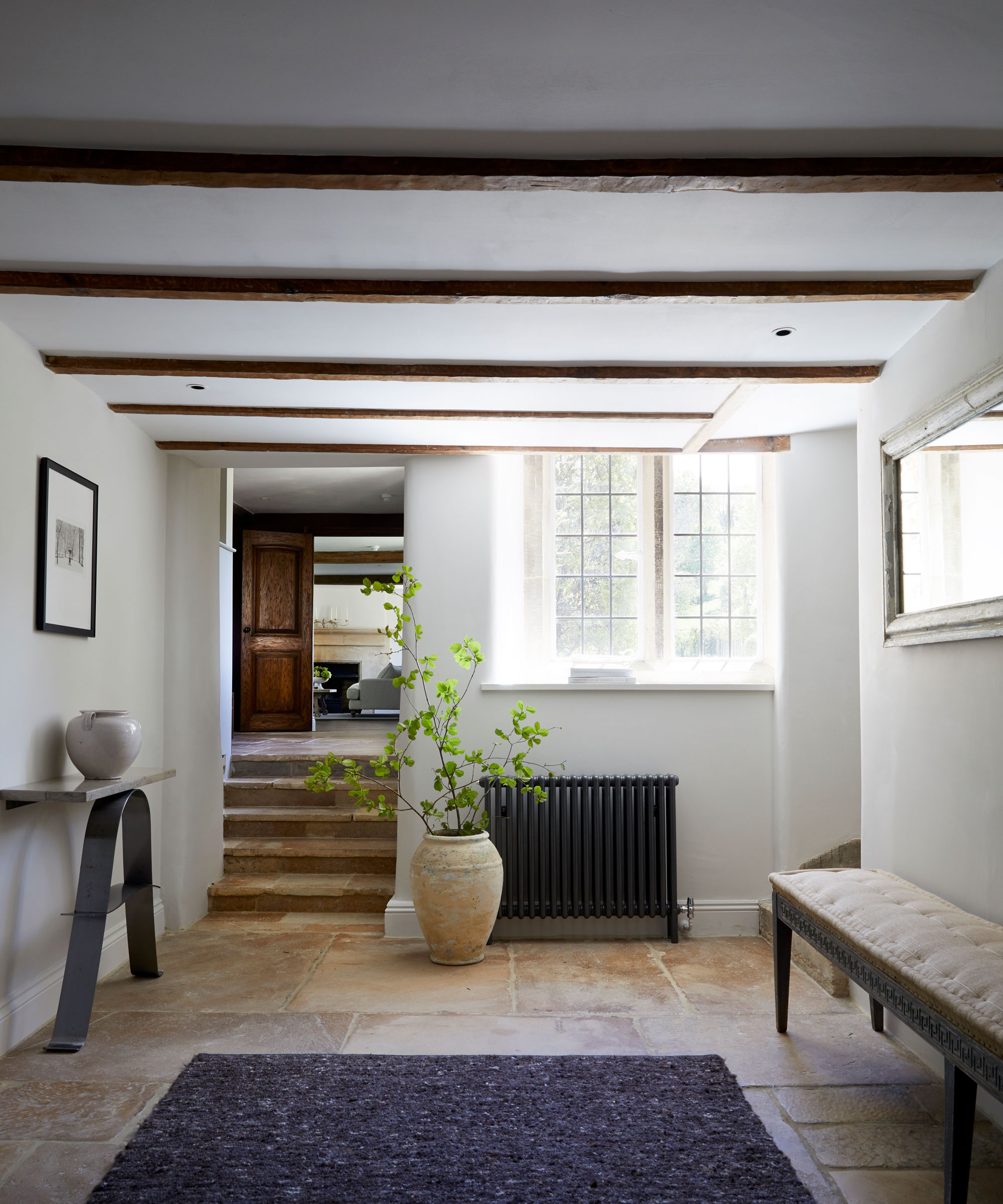
What's the coldest temperature to keep an empty home in winter?
We asked Glenn just how low you can go when setting your thermostat, and he said that if you are occupying the home, generally 68˚F will be the most comfortable and safe option for everyone. Setting your thermostat to a consistent temperature in winter is also an efficient way to curb condensation, mold and mildew, and won't significantly affect your energy bills either.
'However, when leaving home for long durations, I would only go past the 55˚F mark if someone regularly checks up on the house to ensure there are no plumbing issues,' says Glenn.
'Once again, consider that 55˚F mark to be your golden rule, and only go below it if your pipes are preserved for the winter by a professional or someone with particular know-how.' With the thermostat set at just the right temperature, it's time to relax and get into the festive spirit without worrying about any nasty surprises back at home.

Millie is a freelance writer and qualified interior designer based in Sheffield. She has many years of experience in the world of content and marketing, and previously worked as the head of Solved at Homes & Gardens. Before that, she worked in SEO at News UK in London and New York. She has a first-class degree in French and Italian from UCL and loves to weave decor into her home that reminds her of time spent living and studying in Bologna. Millie believes a clutter-free space that you love coming home every day is the best secret weapon for our well-being.
